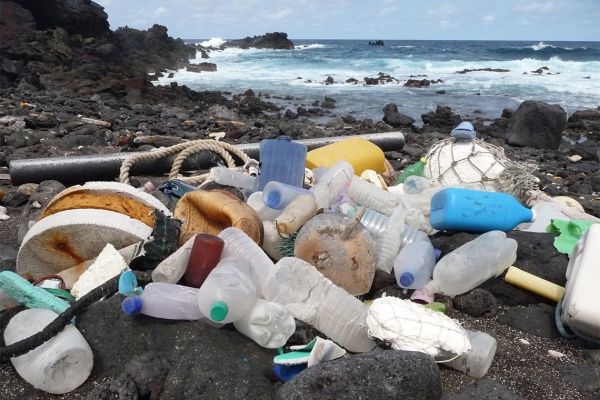Ecologists at the University of Toronto are sounding the alarm after measuring the scale of human response needed to reduce future levels of plastic in the world’s aquatic ecosystems and manage what’s already floating around out there.
The researchers published a study this week in the journal Science that outlines the accelerating pace of plastic emissions that enter the Earth’s waterways each year.
They found that the world is on track to emit about 53 million megatonnes of plastic into lakes, rivers and oceans by 2030 – even if extraordinary measures are taken across the planet to reduce and mitigate plastic waste.
“Unless growth in plastic production and use is halted, a fundamental transformation of the plastic economy to a framework based on recycling is essential, where end-of-life plastic products are valued rather than becoming waste,” says Chelsea Rochman, an assistant professor in the department of ecology and evolutionary biology in the Faculty of Arts & Science and a senior author of the study.
Continue reading at University of Toronto.
Image via Marcus Eriksen.


